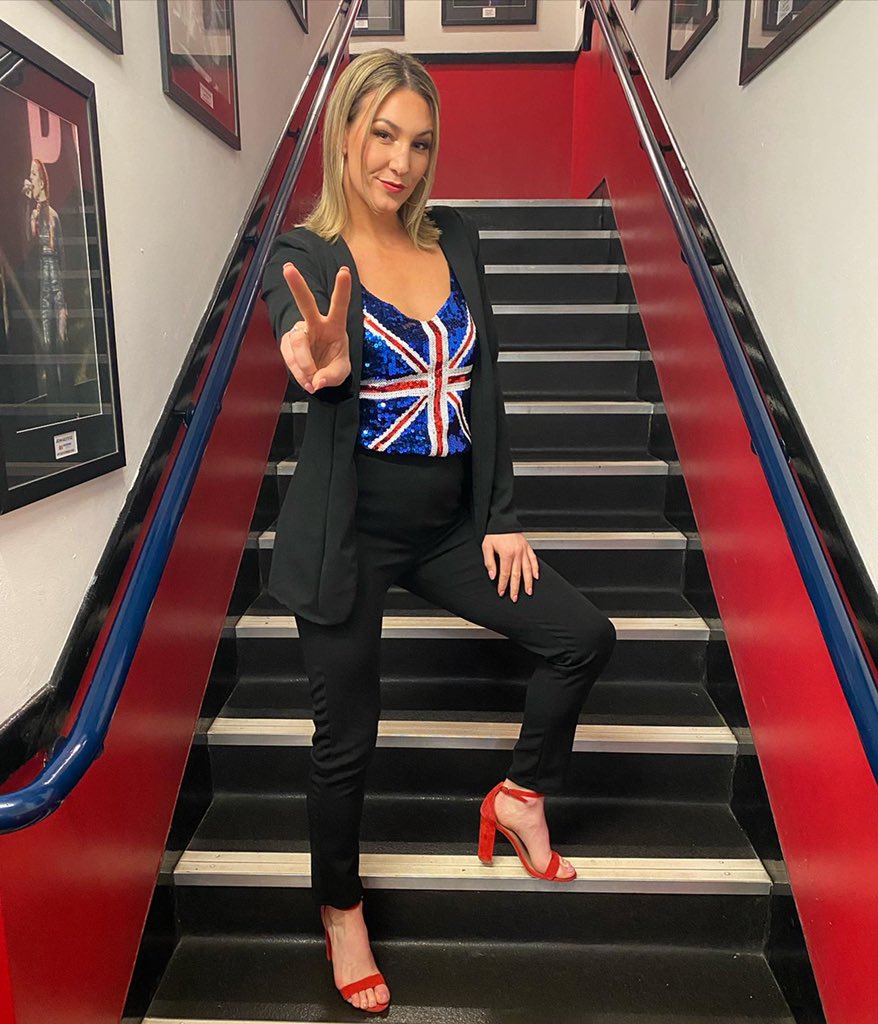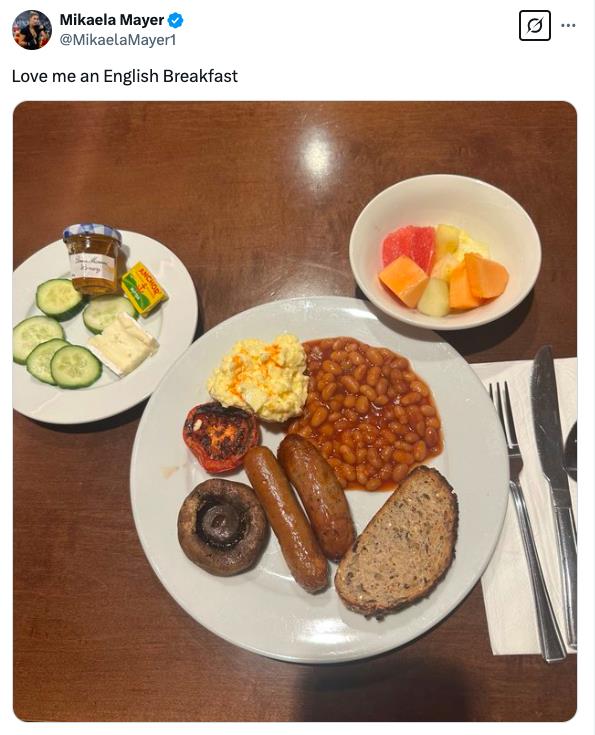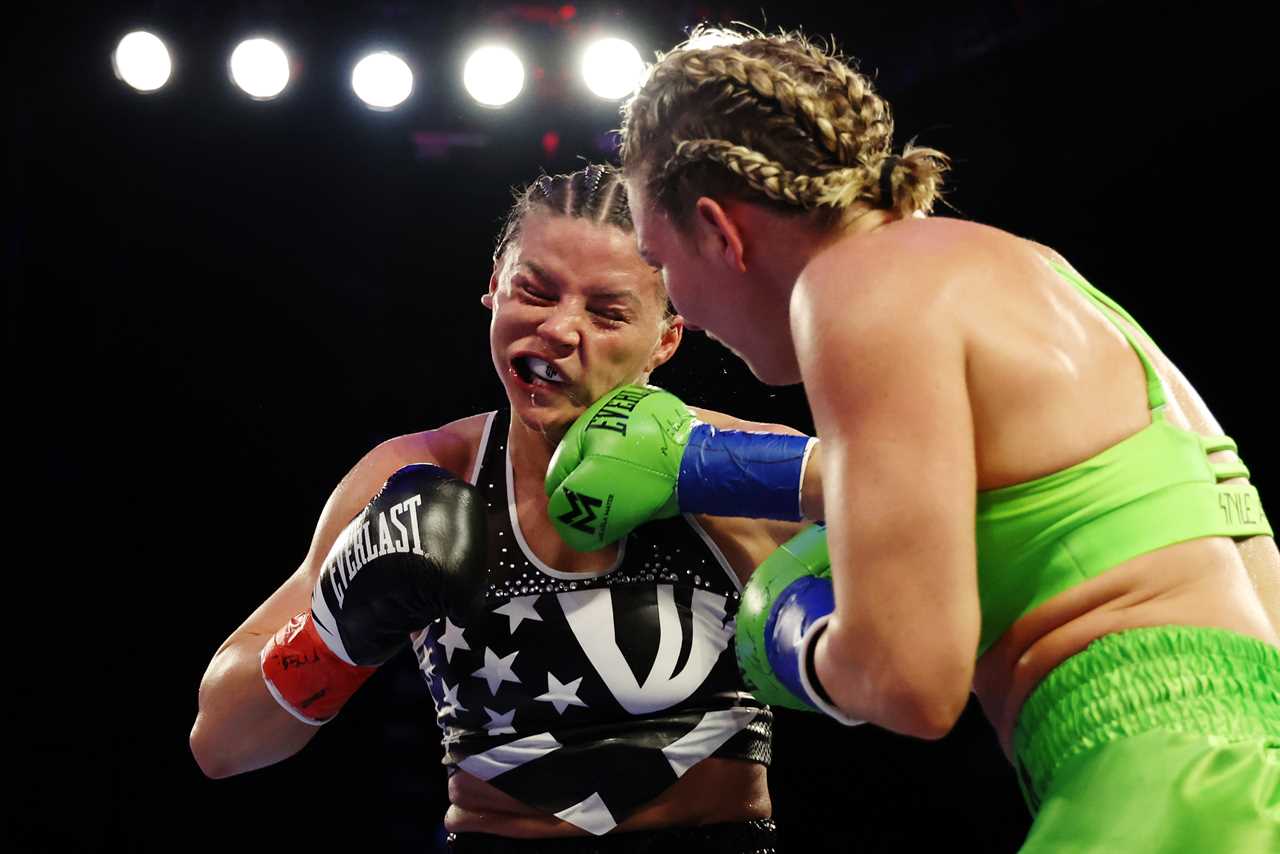
Mikaela Mayer has quickly become a favourite among British boxing enthusiasts, not just for her prowess in the ring but also for her newfound appreciation of British cuisine.
Champion’s Choice: English Breakfast Reigns Supreme
The American welterweight titleholder shared her love for the traditional English breakfast, praising it as the pinnacle of morning meals. Mayer, 34, expressed her admiration during an interview, highlighting the hearty and varied nature of the British fry up.
"What I do like about UK food is your guys’ breakfast. Our continental breakfast here in the US is not as substantial," she remarked. "It's just like muffins and bread, but there you have meats, cheeses, vegetables, and all kinds of stuff."
Mayer contrasted this with her experiences abroad, noting a lack of flavour in some international dishes. "Everything’s very bland. I think I went over there and ordered a shrimp cocktail, and it’s just completely different. It doesn’t taste American."

Building a UK Connection Through the Ring
Four of Mayer’s last five fights have taken place in the UK, cementing her status as a beloved figure among British fans. Her most recent bout against Derby’s Sandy Ryan in New York garnered significant attention, not only for the fight itself but also for the events leading up to it.
Last September, Mayer triumphed over Ryan in a thrilling yet contested decision. The match faced controversy when an unknown individual threw red paint on Ryan just hours before the fight. While Ryan reported the incident to the police, Mayer clarified she had no involvement in the stunt. Despite the turbulence, Mayer remains focused on her upcoming rematch in Las Vegas.
Eyes on the Rematch: Clearing the Air
Mayer is determined to settle the score with Ryan once and for all. "She didn’t have a rematch clause, but if a fight warrants a rematch and the fans want to see it, I’m not opposed to doing that," Mayer stated.
She emphasized her commitment to delivering the best performances for her supporters. "If they want to see it, we’ll just do it again and eliminate all the doubt," she added, hoping for a smooth and fair fight without any further disruptions.

Competitors on the Horizon: Lauren Price’s Ambitions
Meanwhile, Welsh fighter Lauren Price continues to dominate the boxing scene, holding the WBC, WBA, and IBF titles. Price, 30, recently unified her belts by defeating Natasha Jonas, 40, in the 147lb category. As Mayer focuses on her rematch with Ryan, Price eyes a potential return to the UK to unify titles.
"I love fighting in front of the UK fans. I really enjoyed the last two years fighting over there, I don’t regret it. It is part of my story," Price commented. She acknowledged the possibility of needing to compete in the UK to secure all her titles. "Lauren Price has three belts, and I’ll have one. So I might have to go over to the UK to unify."
Price remains strategic about her career moves, ensuring she positions herself optimally while maintaining her health and performance. "I just want to make sure that I’m putting myself in the best position and taking care of myself," she concluded.
A Shared Stage: Future Fights with British Fans
The anticipation for the rematch between Mayer and Ryan is building, with fans eager to see if Mayer can solidify her standing without the previous controversies. Both fighters are committed to delivering an unforgettable match, free from any unexpected interruptions.

The UK boxing community continues to support its international stars, celebrating their successes and eagerly awaiting future bouts. With Mayer’s fondness for British breakfast and her dedication to her craft, she exemplifies the strong bond between athletes and their fans across the Atlantic.
As Mayer prepares for her upcoming fight, British supporters can look forward to more thrilling encounters and perhaps even new champions emerging from this vibrant boxing landscape.
Frequently Asked Questions
How long does it typically take to become a professional boxer?
The time needed to become a professional fighter can vary greatly. The length of time to become a professional can be affected by the person's initial skill level, his or her ability to adapt and their training. It can take a number of years to develop the necessary skills and gain enough amateur experience. Some people may develop more quickly while others will take more time.
Anyone can learn how to box professionally.
Not everyone can compete at the professional level. The combination of talent, physical ability, mental toughness and dedication is required for professional boxing. Prospective boxers must also be willing to face the inherent risks of the sport. A thorough examination by a trainer is a good way to determine whether or not someone has potential for a boxing career.
How important are physical conditioning and training for professional boxers?
Physical fitness is essential for professional boxing. Sport requires high levels strength, speed endurance and agility. Professional boxers should follow a tailored fitness plan that includes aerobic and aerobic workouts, strength and endurance training, and flexible exercises. A boxer cannot train efficiently and perform well in the ring without superior physical fitness.
What are the risks of professional boxing?
Professional boxing is a contact sport and as such, it carries risks. There are many acute injuries that may occur, including head trauma and fractures. Chronic conditions can also develop, such a concussions. Proper training, safety equipment, and adherence to boxing regulations help mitigate risks, but they can never be fully eliminated. Accepting and understanding these risks are essential to choosing to box professionally.
How important is mental toughness to professional boxing?
Mental toughness in professional boxing is as crucial as physical conditioning. Resilience, focus, pressure-handling ability, and psychological fortitude are all required in the sport. Mental preparation involves stress management techniques and developing an aggressive mindset in order to overcome the challenges of the ring. A boxer without mental toughness may find it difficult to perform well under the extreme conditions of a professional competition.
Is there an age limit for boxing?
There are age restrictions in professional boxing. Most boxing organizations require boxers to be 18 years old or older before they can fight professionally. On the upper end, while there is no specific age limit, physical capabilities and health factors will naturally limit the age at which one can compete effectively and safely. It is important that older athletes are thoroughly evaluated for risk and fitness before they take up a professional sport.
What role do managers, promoters and agents play in a pro boxer’s career?
Managers and promoters play pivotal roles in a boxer's professional career. Managers guide the career of the boxer, negotiate contracts and handle the business affairs for the boxer. They are also responsible for selecting the appropriate fights and protecting the boxer's interest. Promoters on the other hand focus on event planning, marketing of fights, attracting audience, and sponsor attention. This enhances a fighter's public image and earning potential.
Statistics
- Reports suggest that successful professional boxers can earn upwards of 50 times more than the median purse for entry-level professionals per fight.
- On average, a professional boxer spars between 100 to 200 rounds in preparation for a major fight.
- Statistical data indicates that there has been a 15% increase in the number of professional boxing gyms over the last decade.
- A study showed that most professional boxers have spent more than 4 years in training before their first professional bout.
- Research shows that a boxer's reaction time is typically under 0.25 seconds, honed through repetitive drills and sparring.
- The average age for boxers to turn professional is between 18 to 25 years, though many continue to compete well into their 30s and beyond.
- Professional boxers typically train 4 to 6 hours per day, 5 to 6 days a week, depending on their fight schedule.
External Links
How To
How to handle recovery after intense Boxing Training
Efficient recovery after intense boxing training is critical for performance and progression. Implement a cool-down routine after workouts that includes stretching and low-intensity cardio to reduce muscle soreness. Prioritize nutrition immediately following training; a mix of protein and carbohydrates can aid muscle recovery. Replenish fluids that you lose during exercise. Sleep is vital for recovery. Aim for 7 to 9 hours of sleep per night. Regular use of foam rollers and massage therapy can also support muscle recovery and reduce stiffness.
Did you miss our previous article...
https://sportingexcitement.com/boxing/local-boxer-fabio-wardley-aims-to-ignite-portman-road-with-highstakes-fight
 CricketBoxingFormula 1GolfHorse RacingPremier LeagueTennisPrivacy PolicyTerms And Conditions
CricketBoxingFormula 1GolfHorse RacingPremier LeagueTennisPrivacy PolicyTerms And Conditions
